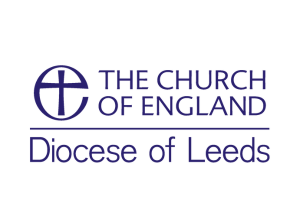How do I know if I have a calling?
God speaks in an infinite variety of ways,so how do we know when God is speaking to us?
Once again, this is where we must not focus on the individual. While it is true that some people sense a special personal revelation, a calling must be assessed within the Christian community. If you think that God is speaking to you, what do other people think?
There are several things to consider when we feel God may be calling us to do something:
- Is it biblical? - does this contravene what God has already said on the subject? Most of the time, guidance involves simply doing something that is plainly commanded in scripture.
- Is it helpful? - does it demonstrate love for our neighbour?
- Does it make sense? - does it pass the test of plain common sense? While sometimes we are called to do extraordinary things for God, is this thing so foolish as to make it ridiculous? Often the people we love will tell us!
- What do others say? - what is the advice of mature Christian friends and leaders?
- Is this the time? - is this something for now or do we need to wait?
Although many Old Testament characters seem to have a significant, clear call from God, and St Paul has his "Damascus Road" moment, Bible characters are not usually there as examples to follow. Their situation was often unique and unusual. Beware of thinking of yourself as "special", as though God has chosen you as the only one who can save the world. (That was Jesus Christ!). Nevertheless, each of us has responsibility to discern what God wants us to do with our lives, with the help of others.
So...
- Read the Bible and pray regularly
- Note the nature and character of God - revealed in Jesus Christ
- Note that God made the world and it was good
- Note that you are of great worth because you are made by God, and if you are a Christian you are redeemed by his Son and his Spirit lives within you
- Note that God loves you and chose you before the foundation of the world
- Note the unfolding of God's great plan from Genesis to Revelation and reflect: where might I fit into God's continuing work?
- As someone has said: "God's love is so great, he loves you are; God's love is so great he doesn't leave you as you are."
- Aim to do the things God/Jesus has commanded, which the baptismal service affirms:
- come to Christ as your Saviour
- submit to Christ as Lord
- come to Christ, the way, the truth and the life
- love your neighbour
- seek the Kingdom of God
- be an active member of the church
- seek to be faithful in public worship and private prayer
- Look at the verse from Ephesians 4, above
- the Christian life is something we do together as a community. What role could you play?
- What is your church already doing?
- What are the needs of your church and/or community? How could you help?
Many people have found it helpful to do the Introduction to Theology Course, run by our Lay Training Department. This involves 12 sessions over 12 weeks and you can find all the details here.
The Lay Training team also run the Online Discovery Course. which can be a great way to explore your role in the life of the church.
If you are under 30 you may wish to attend the annual 'Step Forward Conference' at Bishopthorpe, York.
An extensive list of books about vocation and related topics is available.
Alternatively - browse some of the Useful Links.

